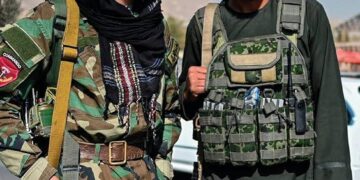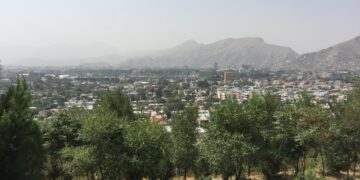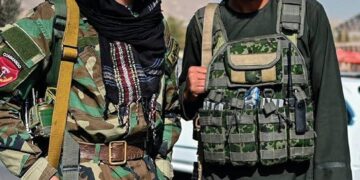Three Years After the Fall of Kabul, Afghan Activists Remain in Hiding or Await Resettlement Abroad
As the world marks three years since the Taliban’s rapid takeover of Kabul, Afghan activists find themselves caught in a precarious limbo, balancing hope and despair. Following the U.S. withdrawal and the return of the militant group to power, many individuals who once stood at the forefront of a burgeoning civil society have been forced into hiding, living in constant fear for their lives. Others await uncertain futures as they navigate the complex pathways of resettlement to foreign lands. In a poignant report by Freedom house, the dire circumstances faced by these brave advocates underscore not only the immediate threats to their safety but also the larger implications for democracy, human rights, and global responsibility.As international focus wanes, the urgent need for support and solidarity with Afghan activists has never been more critical.
Challenges Faced by Afghan Activists in the Wake of Taliban Rule
The aftermath of the Taliban’s return to power has posed an array of perilous challenges for Afghan activists, forcing many into a precarious existence. Activists who once championed human rights, women’s education, and social reforms find themselves at constant risk of persecution, with many resorting to living in secrecy to evade detection. Reports indicate that a notable portion of these individuals have faced direct threats from the Taliban,leading to an alarming rise in fear and uncertainty within activist circles. As the Taliban curtail freedoms and dismantle platforms for dissent, those working for change grapple with the following struggles:
- Surveillance and Intimidation: The Taliban has intensified monitoring of known activists, creating an atmosphere of terror.
- Internal Division: Differing perspectives amongst activists about collaboration with international organizations add layers of complexity to their efforts.
- Loss of Resources: Financial and logistical support from international allies has dwindled, leaving many without essential tools to organize and speak out.
Still, many activists remain steadfast in their resolve, acutely aware that their voice serves not only their interests but also those of the marginalized populations across Afghanistan.The road to safety and sustainability often leads to the daunting process of resettlement abroad, where bureaucratic red tape and lengthy waiting periods have hampered progress for thousands. Compounding these issues is the reality that many governments may lack the resources or political will to assist them adequately. A brief overview of the current situation highlights the urgent need for international attention:
| Challenges | Impact on Activists |
|---|---|
| Security Threats | Increased likelihood of arrest or violence |
| Limited Support | Diminished capacity to advocate and mobilize |
| Resettlement Delays | Extended periods of uncertainty and instability |
The ongoing Struggle for Resettlement: A Call to Action for International Communities
The plight of Afghan activists has reached a critical tipping point as many continue to live in hiding or await resettlement opportunities that seem increasingly elusive. Despite the global outcry for the protection of their rights and safety following the Taliban’s return to power in August 2021, the situation remains dire. Many individuals who played crucial roles in advocating for human rights, journalism, and education are now forced to remain anonymous, risking their lives daily.They are caught in a cycle of uncertainty, often facing threats from oppressive forces that wish to silence their voices. The international community must rally to address their urgent needs.
This call to action requires a concerted effort to facilitate the resettlement process for those fleeing persecution. The ongoing struggle underscores the need for collaborative international policies that prioritize the safety of vulnerable populations. Key actions include:
- Streamlined visa processes for activists and their families.
- Increased funding for resettlement programs and support services.
- Advocacy initiatives to raise awareness of their plight.
- Partnerships with local NGOs to provide immediate aid and support.
To visualize the ongoing crisis, the following table outlines the number of Afghan activists in hiding and their desired future locations:
| Country of Resettlement | Number of Activists in Hiding | Support Needed |
|---|---|---|
| United States | 200 | Visas, Job Placement |
| Canada | 150 | Housing, Legal Assistance |
| germany | 100 | Integration Programs |
The time to act is now; the voices of those who fought for freedom cannot be allowed to fade away as they await a chance to rebuild their lives outside the shadows of oppression.
Safeguarding the Rights of Afghan Women and Minorities Amidst Continued oppression
In the wake of the Taliban’s return to power, the situation for women and minorities in Afghanistan has worsened substantially. As many activists navigate the treacherous landscape of oppression, their pleas for international support remain largely unheard. Afghan women, once symbols of resilience and progress, now face severe restrictions on their rights, including:
- Complete bans on education for girls and women.
- Severe limitations on their ability to work, especially in sectors that empower them.
- Increased violence and discrimination, often going unpunished.
Additionally, minority groups such as Hazaras and Sikhs suffer profound threats to their safety and cultural identity. Despite these dire conditions, many activists continue to advocate for change from their hiding places or while awaiting resettlement abroad. International organizations must prioritize the voices of these individuals, as they represent the hope for a more inclusive Afghanistan. Key strategies could include:
- Providing platforms for Afghan activists to share their stories and challenges.
- Implementing targeted humanitarian aid that addresses the needs of vulnerable populations.
- Pushing for political measures that hold the Taliban accountable for human rights violations.
Insights and Conclusions
As the world reflects on the three-year anniversary of the Taliban’s return to power in Afghanistan, the plight of Afghan activists remains a pressing concern. With many individuals forced into hiding or awaiting resettlement abroad, their struggle underscores the broader implications of the political upheaval in the country. Despite the challenges, these brave voices continue to advocate for change, often at great personal risk. As international attention wanes, it is crucial that global powers and humanitarian organizations maintain their commitment to supporting Afghan civilians who have courageously fought for their rights and freedoms. The resilience of these activists serves as a powerful reminder that the quest for democracy and justice persists, even in the most daunting of circumstances. Attention to their plight is not just a matter of humanitarian responsibility; it is essential for the future stability of Afghanistan and the preservation of its civil society.















How Trump’s Tariffs Transformed a Mexican Businessman into a Grateful Ally